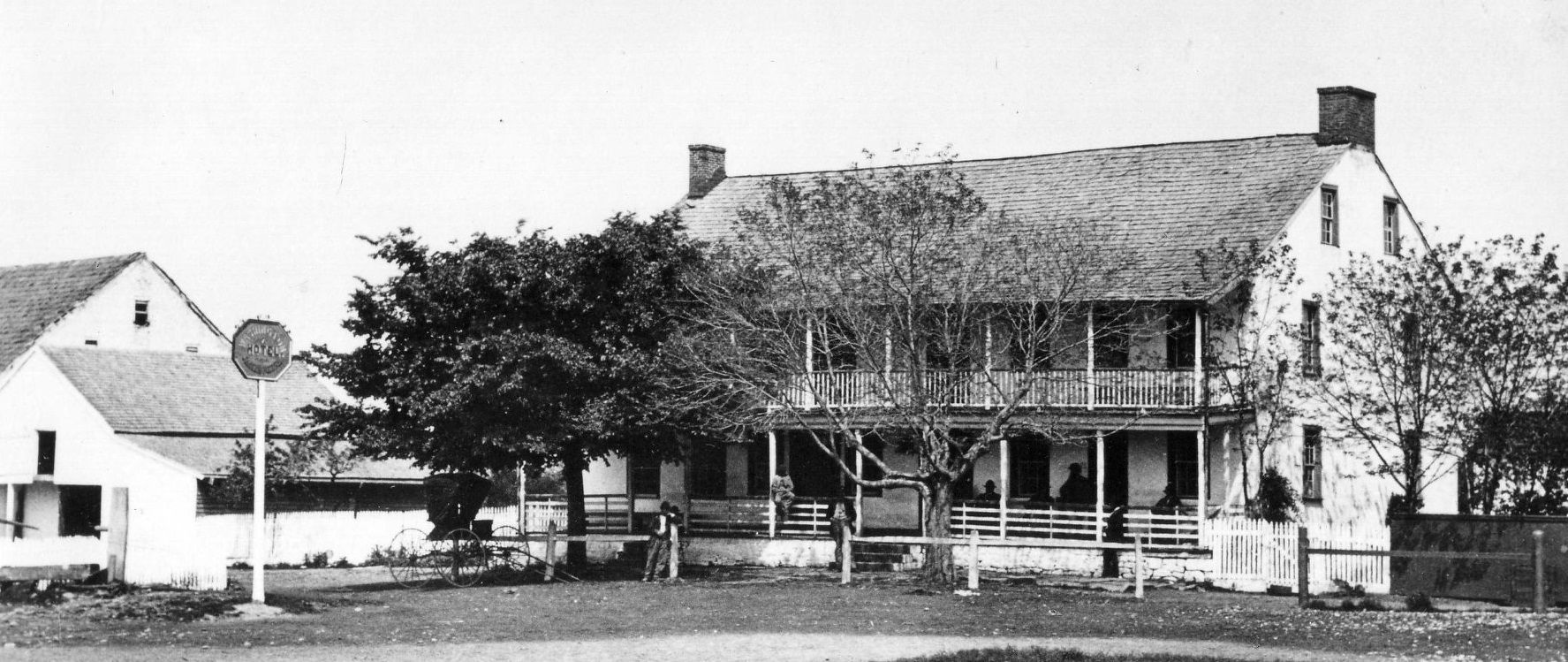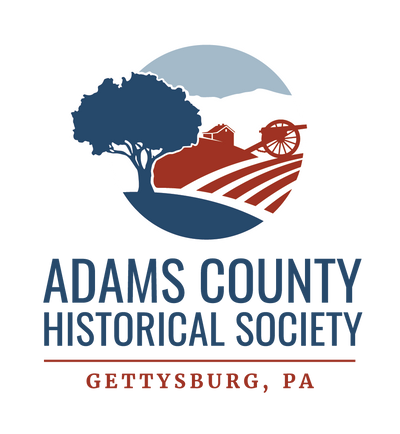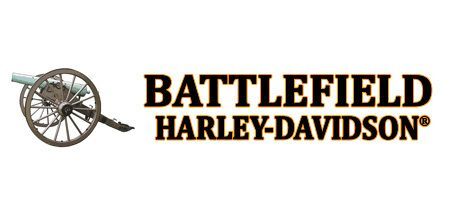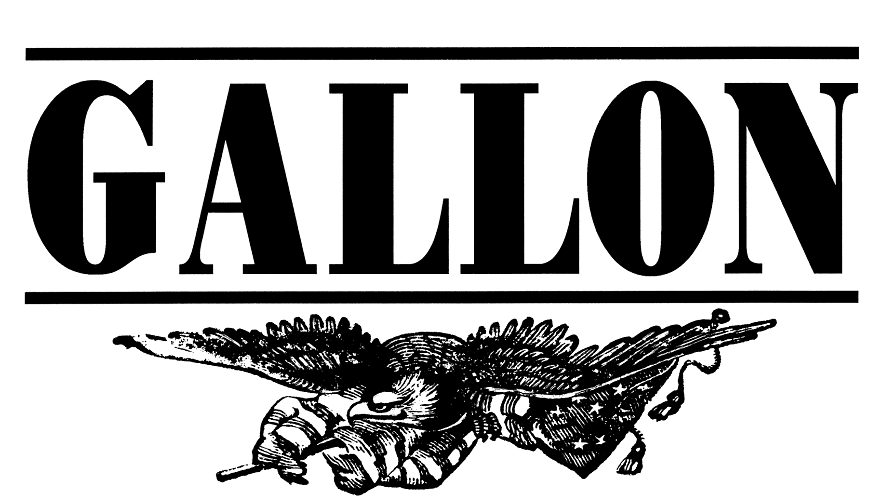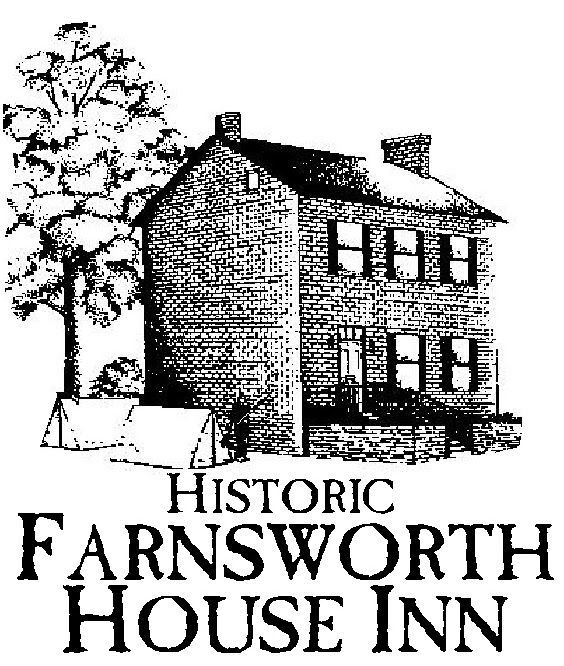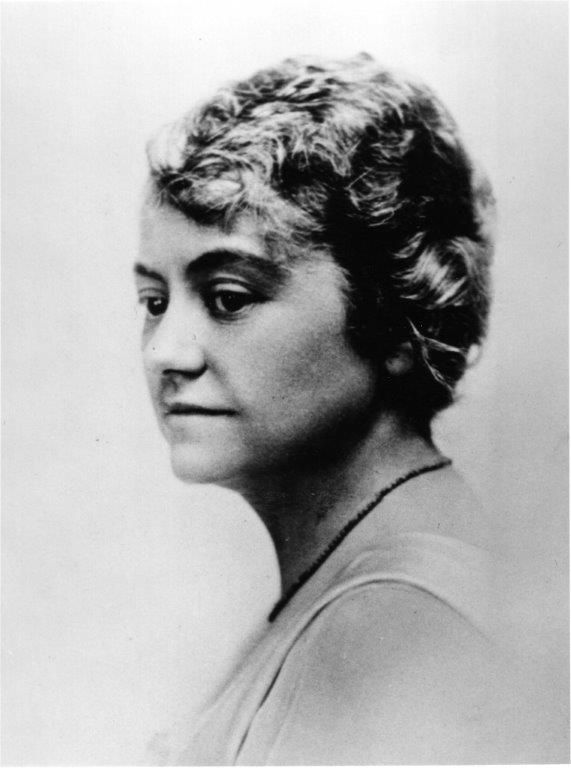
Elsie Singmaster was a local Adams County author. We will be selectively republishing some of her stories on the #15SouthBlog. You can learn more about Singmaster's work here.
When Simon Lee, the shoemaker, left Blue Hill Village on his strange quest, he seemed to steal away. It is a curious fact that you cannot get out of Blue Hill village even in the daytime without seeming to steal away. When you walk down the only street, which twists exactly like the letter S, you are never visible from more than one house at a time. A branch which you have disturbed sweeps into place behind you, or an oak tree shadows you, or the corner of a log cabin conceals you. If you step out of the village in any direction, north or south or east or west, meaning to ascend the mountain, you are swallowed up, even in the narrow road, by a sea of verdure.
When young John McIntyre and Benny Lucas marched away early one summer evening, there could be no formal procession, because there was no place in which to march. There was, however, an escort. Grandfather McIntyre walked first, toothing on an old fife, and then came the boys, each with a little bundle, and then the fathers and mothers and the few young girls and the children. They kept close together, and the group was so small that they never occupied at one time more than one limb of the letter S.
Not only did elderberry bushes and early shadows and corners of house walls hide their bodies, but a loud sound drowned out their voices and made their little celebration seem ridiculous. The sound was that produced by whippoorwills whooping above their heads. The whippoorwills seemed to mock them and jeer at them. It is to be regretfully recorded that Will Lucas, who could not go to war because he was lame, turned and put out his tongue in the direction of a particularly scornful bird.
Simon Lee, sitting in his little house, tapped and tapped and did not bestir himself. But Blue Hill Village knew that Simon had given each boy twenty-five dollars, a princely gift, and that it was he who would look after Gran’pa McIntyre. What Blue Hill Village did not realize was that Simon, seeing a faint glow of amazement and disapproval in the breasts of Blue Hill Village in the summer of 1914, had watched it and sheltered it and put fuel delicately upon it, so that in this summer evening of 1917 it flamed to a consuming fire in the hearts of John and Benny and other Blue Hill Villagers. Simon had books and newspapers and knowledge of the outside world; he was Blue Hill Village’s only Mercury.
He was also Blue Hill Village’s only encyclopaedia, and of him Benny and John made constant use.
“Do you think we ought to go into it, Simon?”
“I think we ought to be in it,“ roared Simon.
About matters nearer home Simon knew everything. Thin and spare, he looked to be about sixty-five, and his memory went back to a time about which the lads now grew suddenly curious. Blue Hill Village had remained exactly as it was for fifty years, since war had maimed and molded it. It did not realize that the earth had more than once turned upon its axis. It held old traditions, it felt old griefs, old antagonisms, old divisions. In the minds of blue Hill Village there was still a North and a South.
“It’s a pity we had to fight the South,” said John McIntyre. He sat on the edge of Simon’s bench piercing a piece of leather with an awl.
Will Lucas answered from his perch on a shelf. Will always clambered about as though bent upon proving that lameness was nothing.
“They hadn’t any business to cut up the way they did. They were rebels.”
“There are Southern boys and Northern boys together in the camps,” said John McIntyre. “Do you suppose there will be any trouble? It would be a shame if there were.”
“Don’t you give trouble!” cried Simon. “There are words must be forgotten, like ‘Yank’ and ‘Reb.’ They can be forgotten if you think of what you have to do now. You must be peacemakers if you can.” Simon trembled. The proximity of boys from Alabama was to his mind full of peri; the action of the Government in placing them together a tragic mistake.
“But we were right,” said John McIntyre, earnestly.
Simon Lee rose from his old bench.
“As right as right,” he said.
“they say there was folks in this State didn’t think so,” said Benny Lucas. “My pop says that. He says there was none of them around here, though. They were going to betray the North even though they were Northerners. ‘Sons of Liberty,’ they called themselves, and ‘Knights of the Golden Circle.’ But the Government found them and took their names, and made a record fo them, thousands and thousands. I wouldn’t like to have my name on that record.”
Simon Lee began to put away his tools. He looked very pale; it seemed that the perfidy of Sons of Liberty was too much for him.
“God bless Abraham Lincoln!” said he, apropos of nothing at all.
When the procession was over and John and Benny had been swallowed up and the whippoorwills seemed to grow hysterical in their mockery, and doors closed and shut out the cool evening air, Simon Lee laid down his hammer and put his shop in order for the night and took off his leather apron and went up the rough street. It was a starless night, and he made his way slowly to Grandpa McIntyre’s door. There he lifted the latch and went in with an explanatory “It’s me.” Inside he locked the door and then sat down heavily in the unoccupied chair of the two which were all the little kitchen could accommodate.
Grandfather McIntyre looked up with tearful eyes. They had been boys together, but Simon Lee did show his years, and Grandfather McIntyre, white-haired and tremulous, looked much older than he was.
The cries of the whippoorwill penetrated here; they seemed to mock, before they were uttered, any thoughts or plans which were to be expressed.
“You seen ‘em go?” said Gran’pa McIntyre at last. He spoke like the rest of Blue Hill Village in a patois which had in it now a Southern drawl and now a Yankee crispness.
Simon made no direct answer; he said, “God help me!” not profanely, but as though he were actually calling upon God, and covered his face with his hands.
“Don’t, Simon!” protested Gran’pa McIntyre. He did not know the reason for his friend’s depression, but he was always sympathetic.
Though he had only just come, Simon rose from his chair.
“You’ve got John,” said he, bitterly. “I have nobody and never will have nobody.”
“It’ll be made right in heaven, Simon.”
“Heaven!”” Simon Lee lifted his hands high above his head. “I don’t care nothing for heaven.”
Gran’pa McIntyre put out his hand to take a book at his elbow. It was bedtime, and emotion had tired him out. He knew that Simon did not mean what he said.
“You join with me in my Scripture reading?”
Simon did not care to hear the Scriptures read, but he stayed, not wishing to hurt Gran’pa McIntyre’s feelings.
I will read from Leviticus, the twenty-fifth chapter,” announced Gran’pa McIntyre as though he were in church. He was Blue Hill Village’s lay reader, and he believed that which he read.
“”And then shalt thou cause the trumpet of the jubilee to sound on the tenth day of the seventh month, in the day of atonement shall ye make the trumpet sound throughout all your land.
“’And ye shall hallow the fiftieth year, and proclaim liberty throughout all the land unto all the inhabitants thereof; it shall be a jubilee unto you.’”
Gran’pa McIntyre went on and on. He was proud of his round voice and of his ability to read without stumbling over the hardest words. He did not know when Simon rose and slipped away. When he reached the end of the twenty-seventh chapter and found him gone, he was afraid that he had nodded and that Simon was offended.
But Simon was not offended. He was intensely preoccupied, and he walked down the dark, rough road uncertainly like a drunken man. His breath came thickly and painfully. Simon saw suddenly a light, pale and wavering, against a great darkness. Sometimes it grew brighter, then it faded away, then once more it brightened. It was Gran’pa McIntyre’s reading which had created the illumination.
Inside his little house, he leaned against the door, which he had closed behind him. He passed his hand before his eyes as though to clear away some obscuring medium. Presently he burst into speech:
“A year of jubilee!” said Simon, “A year of jubilee!”
Suddenly he stretched out his arms as though reaching for some great boon. Beads of perspiration appeared upon his forehead, and his eyes stared as though he saw again a pale gleam of hope. Into his mind came disconnected words and phrases, and he repeated aloud.
“A far country,” said Simon, and then other words which sounded like “I will arise and go.”
After a long time he began to move slowly about. He took from a shelf a dusty satchel, and wiped it with his stiff shoemaker’s apron and put into it a few articles. Then he lay down upon his bed. The whippoorwill still shouted, as though they mocked his strange distress.
Not only the woods hid Simon, but darkness seemed to swallow him when he went away. He announced his going to no one; between the hour of his resolution and the hour of his departure his friends slept. It was not the first time he had gone away from Blue Hill Village, and this was his invariable manner of departure. He was so early that he seemed to wake the birds, and dawn was a pageant spread especially for him. The boles of the trees turned golden, the surface of the brown streams brightened. But, though he was not insensible to beauty, he was at this moment blind and dull. He walked on, his head bent. He longed for John McIntyre’s Bible.
“They forgave everything and everything was wiped out in the year of jubilee.” Said he to himself. “That much I am certain of. Oh, I hope this may be wiped out for me!”
John McIntyre and Benny Lucas had walked eighteen miles to the county seat, where they were to take a train with other drafted boys, but Simon, being a rich man, walked only to the nearest village, and there hired a team. The boys would go West to a camp, but he was going east to Washington. He had never seen Washington, and it had to him all the beauty of a dimly imagined heaven and all the dangers of a forbidden city. “Government” had its seat there, and to Simon, who was familiar with “Les Miserables,” Government was a sort of Javert, cold, unforgetting, implacable. Woe to him, who by his own crimes wrote himself down on its black books!
